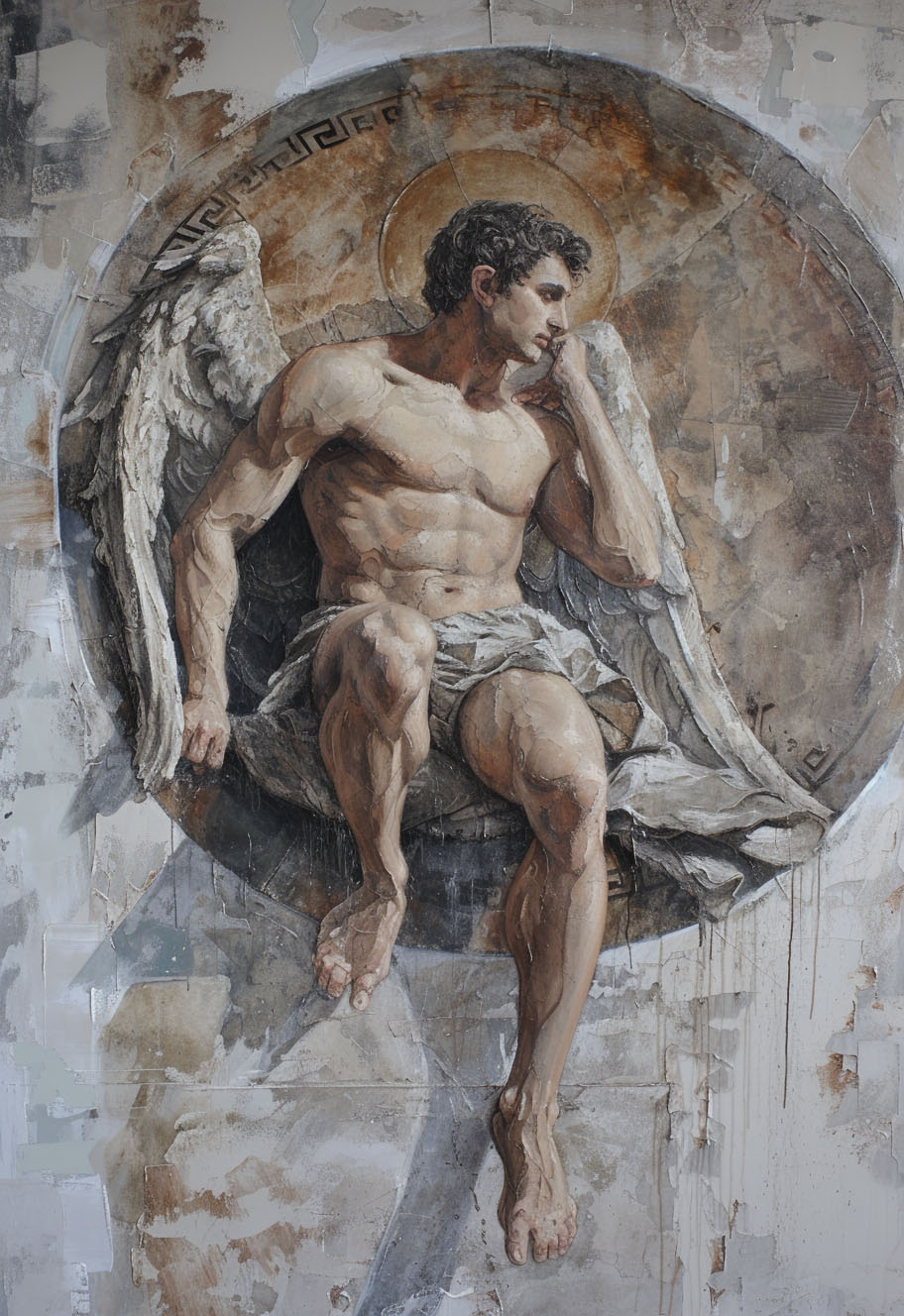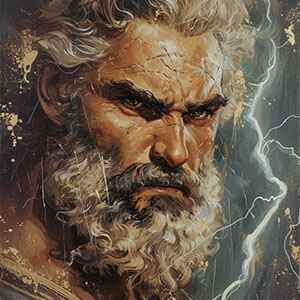Hermes
In Greek mythology, Hermes is one of the twelve Olympian gods and is often considered the messenger of the gods. He is also associated with various other domains, including commerce, travel, cunning, and athleticism. Here are key aspects of Hermes in Greek mythology:

Parentage: Hermes is the son of Zeus, the king of the gods, and Maia, one of the Pleiades.
Birth and Childhood: Hermes was born in a cave on Mount Cyllene in Arcadia. He displayed exceptional precocity and agility from a young age. On the day of his birth, he stole Apollo's cattle and invented the lyre.
Theft of Apollo's Cattle: One of the most well-known stories about Hermes is his theft of Apollo's sacred cattle. To conceal his actions, Hermes made the cattle walk backward, confusing their tracks. When Apollo discovered the theft and confronted Hermes, Zeus intervened and asked Hermes to return the cattle.
Invention of the Lyre: Hermes crafted the first lyre using a tortoise shell. He presented it to Apollo as a peace offering for the cattle theft. Apollo, enchanted by the music of the lyre, forgave Hermes and offered him his caduceus (a herald's staff) in return.
Messenger of the Gods: Hermes is primarily known as the messenger of the gods. He serves as an intermediary between the divine realm and mortals, delivering messages and guiding souls to the underworld.
Caduceus: Hermes's caduceus is a winged staff with two serpents entwined around it. It became a symbol of commerce and is often associated with healing in modern times.
God of Travelers and Thieves: As the god of travel, Hermes was revered by travellers, and wayfarers often erected roadside markers (herms) in his honour. He was also considered the protector of thieves and cunning individuals.
Psychopomp: Hermes played a significant role as a psychopomp, guiding souls to the afterlife. He escorted the souls of the deceased to the entrance of the underworld.
Worship and Festivals: Hermes had various sanctuaries and festivals dedicated to him throughout ancient Greece. The Hermaea festival was celebrated in his honor, involving athletic competitions and sacrifices.
Association with Hermaphroditus: Hermes is associated with the myth of Hermaphroditus, a figure who possesses both male and female qualities. The story involves the union of Hermes and the nymph Salmacis, resulting in the creation of Hermaphroditus.
Roman Equivalent: In Roman mythology, Hermes is identified with Mercury, a god with similar attributes and roles.
Cultural Influence: Hermes has left a lasting impact on Western culture, serving as a symbol of communication, commerce, and agility. He is often depicted as a youthful and athletic figure.
Hermes's diverse attributes make him a multifaceted deity in Greek mythology. His quick wit, cleverness, and role as a messenger connect him with various aspects of human life, and he remains an influential and celebrated figure in ancient and modern contexts.
Immediate Family
Quick Facts
- He is the messenger of the gods.
- Hermes invented the lyre.
- He stole Apollo's cattle and made them walk backward.
- Hermes received Apollo's caduceus as a peace offering.
- He is associated with commerce, travel, and athleticism.
- Hermes is the protector of thieves and cunning individuals.
- He played a significant role as a psychopomp.
- Various sanctuaries and festivals were dedicated to Hermes.
- Hermes is associated with the myth of Hermaphroditus.
- In Roman mythology, Hermes is identified with Mercury.
- Hermes has left a lasting impact on Western culture.
Further Reading
Art &
Architecture
Ancient Greek art and architecture, with its harmonious proportions and timeless elegance, continue to inspire awe and admiration millennia later.
Discover
Greek Mythology & Mythical Characters
Greek mythology, a rich tapestry of gods, heroes, and mythical creatures, captivates the imagination with its tales of love, betrayal, and epic adventures that delve into the depths of the human psyche.
Discover
Ancient Greek History
Ancient Greek history, marked by remarkable achievements in democracy, philosophy, and warfare, shaped the foundation of Western civilization, leaving an indelible legacy of innovation and cultural influence that continues to resonate to this day.
Discover
Ancient Greek Olympics
The ancient Greek Olympics, held in Olympia every four years, celebrated athleticism, unity, and cultural pride, serving as a testament to the enduring spirit of competition and excellence that transcends time and borders.
Discover
Ancient Greek Wars
Ancient Greek wars, such as the Persian Wars and the Peloponnesian War, were pivotal conflicts that shaped the course of history, highlighting the struggle for power, independence, and the clash of civilizations in the ancient Mediterranean world.
Discover
Ancient Greek Culture and Society
Ancient Greek culture and society, characterized by its emphasis on art, philosophy, and civic engagement, fostered a vibrant intellectual and social landscape where innovation flourished, democracy thrived, and the pursuit of knowledge and excellence was celebrated as fundamental values of civilized life.
Discover

